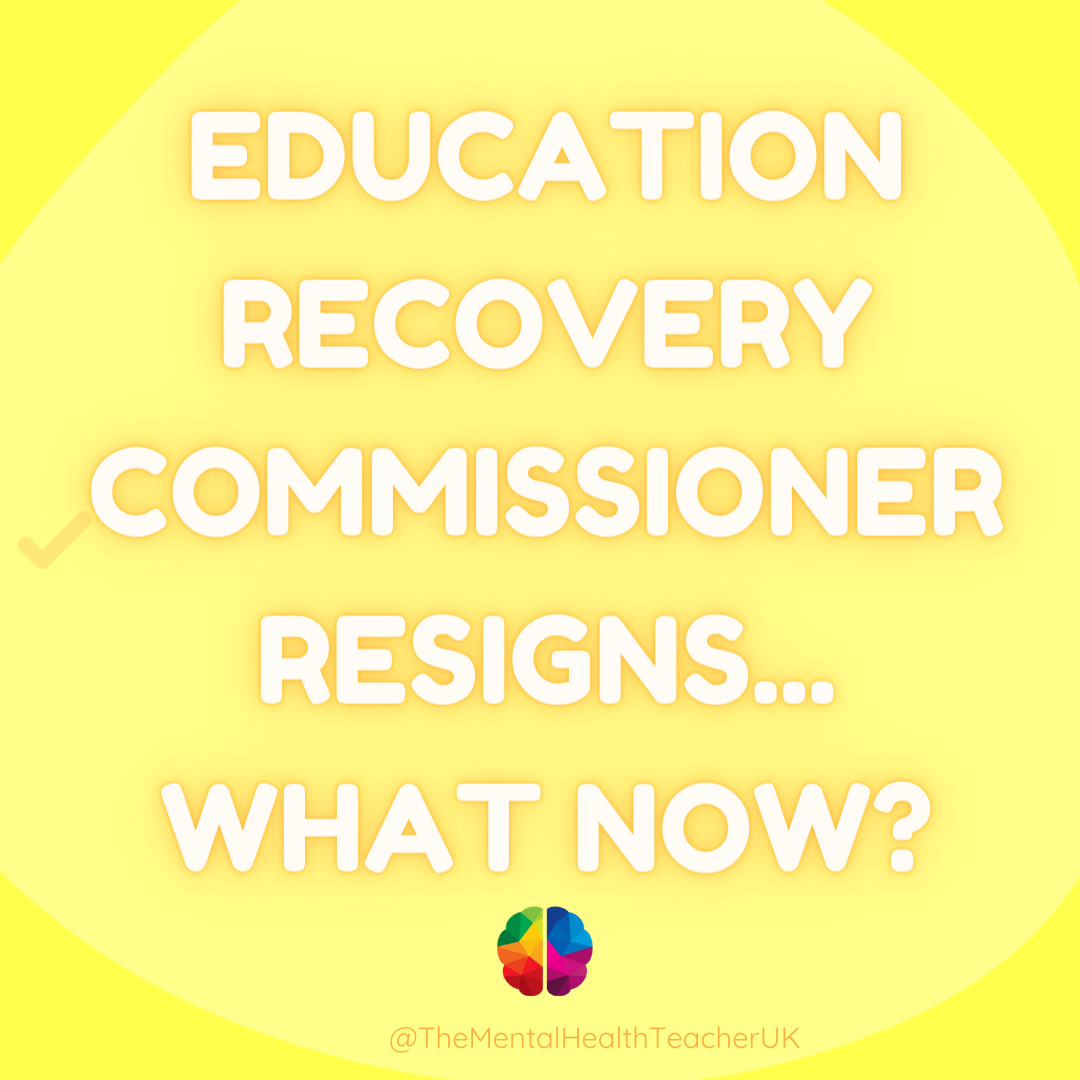
Sir Kevan Collins has resigned, saying that the £1.4 billion allocation is not enough to support a decent recovery programme for education. Hence, he has resigned as he feels that he will not be able to do it justice.
Good for him. We all know what it is like trying to do a good job of something without being given the right resources or funding needed – let alone doing it in the [very critical] public eye.
Perhaps he was hoping that this grand gesture was going to encourage Boris Johnson to increase the funding but it hasn’t. Collins was reported to be wanting around £15 billion for this mammoth task, which is a meagre amount in comparison to the £127 billion spent on public services.

In my opinion, it is the youngest generation who are high up on the most-affected by COVID list (them and the eldest generation) so as much money as needed should be spent on them but NOT ON their education. It should be spent on their mental well-being and social skills. (In my previous post, I speak about the £79 million the government have put aside for children’s mental health and discussed the issues with their plans). In years to come, the children won’t be asked about the science topic that they missed or the music lessons they went without. They will be asked about how they FELT during a worldwide pandemic. They will talk about the clap for carers, the board games they played, the time spent skyping their teacher, the masks they saw the adults wearing, the friends that they missed. NOT the lessons the missed out on.
At the end of the day, they are ALL in the same position. So surely nobody is behind, if nobody is infront?! In every classroom all over the world, the pupils are at different ability levels. Nothing new there. The pupils are likely to still be under-achievers or over-achievers, whatever they were pre-COVID.
For the months on end that they were either being home-schooled or in lockdown, the majority (?) of these children have still been educated, either by their teachers online or by their parents. It is the social skills, the face-to-face communication, the team sports, the hobbies, the interaction that they have missed out on and not advanced in.
Currently, the government are talking about spending this money on tutoring and making the school days 30 minutes longer (the latter was suggested by Collins). As a previous year 1 and 2 teacher, I know that at the end of the day, pupils are tired and hungry – not an optimal state to be learning. As for tutoring, how is this going to work? Will it be one-on-one? Delivered by teachers? Will this money subsidise tutoring payments, making it just for the more affluent pupils (when children from families receiving benefifits are statistically lower academically)?
Perhaps Collins wasn’t the right man for the job after all. Maybe the government should put their trust into the professionals hands and allow schools to decide how to spend the money that will best suit their unique set of pupils. Teaching needs to stop being an over-managed profession and the power should be in the teachers’ hands.

